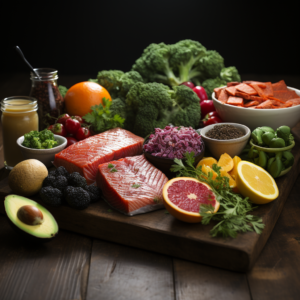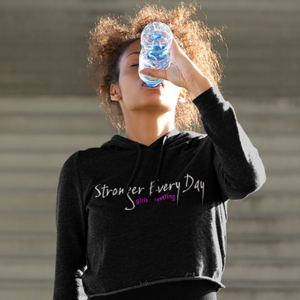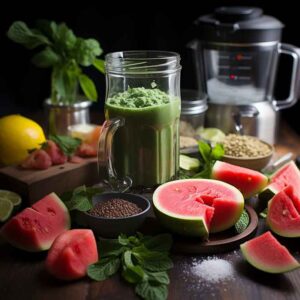Girls Wrestling – Making Weight a Healthy Approach
Safely Make Weight for Girls Wrestling Weigh-ins and Matches
Wrestling requires immense strength, endurance, technique, and mental toughness. Many wrestlers try cutting weight to compete in a lower weight class, gain a size advantage, and dominate at weigh-ins and matches. However, unsafe weight-cutting practices can be extremely harmful for wrestlers. This comprehensive guide provides tips to help wrestlers like you cut weight gradually and healthily.
The Dangers of Extreme Weight Cutting Methods
Many wrestlers engage in rapid weight loss through dehydration and other methods to make weight pre-competition. However, these extreme techniques can impair your performance during wrestling matches and cause serious health issues like:
- Reduced muscle strength and endurance, hurting your moves and maneuvers
- Decreased mental focus and reaction time, negatively affecting technique
- Increased injuries from feeling weak, dizzy, and unstable
- Long-term effects like slowed growth in youth wrestlers
Losing water weight rapidly through sweat suits, saunas, fluid restriction, or laxatives stresses the body. Don’t sacrifice your health and abilities just to hit a lower number on the scale for weigh-ins.
How to Set a Healthy Weight Goal
The first vital step is determining an optimal competitive weight for your height and body type. Here are some tips:
- Consult coaches to identify your best weight class based on your natural size and abilities
- Collaborate with a sports medicine doctor or dietitian to set a healthy target weight
- Losing 1-2 pounds per week through improved diet and exercise is a safe recommendation for wrestlers
- High school wrestlers should follow specific rules for competitive weight management set by state athletic associations
Don’t simply chase unrealistic weight goals. Set a target weight you can maintain without resorting to extreme methods. Remember that strength, conditioning, and skill – not just weight – make champions.

Smart Nutrition and Training
With intelligent nutrition choices and training, you can get lean, strong, and powerful without drastic last-minute weight cuts:
- Strength training builds muscle so you can compete at a higher weight class while staying slim and shredded
- High-intensity interval training torches calories without sacrificing your hard-earned muscle mass and strength
- A calorie-controlled, high-protein diet provides proper fuel for intense training, recovery, energy levels, and muscle growth
- Proper hydration is critical – drink electrolyte-rich fluids constantly before, during, and after weigh-ins and matches
Losing body fat while gaining strength-boosting muscle takes dedication but pays off immensely on the mat. Avoid extreme dehydration or starvation that can sabotage your performance when it matters most.
Healthy 1-2 Pound Weekly Weight Loss
Here are some safe, sustainable tips for gradual weight cuts as a wrestler:
- Increase exercise duration and intensity to burn 500-1000 extra calories daily
- Reduce daily calorie intake by 500 calories through portion control and low-calorie dense foods
- Drink at least 1 liter of water for every 1 kg (2.2 lbs) of your body weight daily
- Load up on protein plus fibrous vegetables and complex carbs – skip added sugars
- Weigh yourself weekly rather than daily to allow for natural body fluctuations
- Get enough rest for optimal muscle recovery and consider meeting with a sports dietitian
With discipline and consistency, you can safely get your body into peak competitive shape over time without extreme measures. Be patient and let the process work.
 The Importance of High Nutrient Foods
The Importance of High Nutrient Foods
As an athlete, the foods you put into your body are the fuel for your success. Focus on getting proper nutrition from wholesome, high quality sources. Here’s what you need to know:
Choose Nutrient-Dense Foods
- Whole grains – Oats, brown rice, and quinoa offer energizing complex carbs and fiber.
- Bright vegetables – Broccoli, kale, peppers, and tomatoes provide vitamins, minerals, and antioxidants.
- Fresh fruits – Berries, melons, and citrus fruits are loaded with fiber, vitamins, and antioxidants.
- Healthy fats – Nuts, seeds, avocados, and olive oil provide essential fatty acids.
- Proteins – Fish, eggs, Lentils: A legume rich in protein. Chickpeas: Great for salads and hummus. Quinoa: A grain that’s a complete protein.Tofu: Made from soybeans, versatile in cooking. Almonds: A nut that’s a good protein snack. These provide muscle-building amino acids.
Hydrate Properly
- Drink at least half your body weight in ounces of water daily.
- Unsweetened green tea offers antioxidant benefits without calories.
- Coconut Water provides hydration with nutrients.
-
Mayo Clinic: According to Mayo Clinic, coconut water is no more hydrating than plain water. It does contain calories, about 45 to 60 in an 8-ounce serving.
-
Cleveland Clinic: Cleveland Clinic mentions that coconut water is high in potassium, which can help remove extra sodium from your body and even lower blood pressure.
-
Healthline: According to Healthline, coconut water can be a nutrient-rich choice for hydration and may benefit your heart and kidneys.
-
Medical News Today: Medical News Today states that coconut water contains natural electrolytes, including 600 mg of potassium per cup.
-
Healthgrades: Healthgrades lists benefits like antioxidants, lower blood sugar, and exercise recovery, in addition to hydration and electrolytes
-
Avoid Empty Calorie Foods
- Sugary drinks – Sodas, juice, sports drinks, sweetened coffee and tea.
- Processed carbs – White bread, pastries, crackers, candy and desserts.
- Fried foods – French fries, chicken nuggets, potato chips provide trans fats.
- Fatty meats – Red Meat, Sausage, bacon, hot dogs, ribs are high in unhealthy saturated fat.
Sports Drinks.
They’re colorful, they’re refreshing, and they promise to hydrate you like you’re a plant in a desert. But hold on a minute! Before you chug that bottle, let’s talk sugar.
The Sugar Rush:
Most sports drinks are loaded with sugar. We’re talking about as much sugar as a can of soda in some cases. Sure, sugar gives you a quick energy boost, but it’s a double-edged sword.
The Downside:
- Calories: Extra sugar means extra calories. If you’re not burning those off, they turn into fat. Not ideal for an athlete, right?
- Blood Sugar: High sugar content can cause spikes in your blood sugar levels, leading to energy crashes. Imagine feeling sluggish in the middle of a wrestling match!
- Dental Health: Sugar is not a friend to your teeth. Frequent consumption of sugary drinks can lead to cavities.
- Nutritional Deficit: Sports drinks often lack essential nutrients. You’re basically drinking flavored sugar water.
What to Do:
- Read Labels: Always check the nutritional information. Look for low-sugar or sugar-free options.
- Hydrate Smart: Often, good old water is all you need for hydration.
- Natural Alternatives: Consider coconut water or making your own sports drink with lemon, a pinch of salt, and a natural sweetener like stevia.
So, next time you reach for a sports drink, think twice and do your research. Your body, and maybe even your wrestling performance, will thank you.
Meal Timing Matters
- Eat a mix of carbs and protein before matches to fuel your muscles.
- Refuel with protein plus carbs after exercise to aid muscle recovery.
- Pack nutritious snacks like fruit, nuts, yogurt to stay energized between meals.
- Avoid empty calories late at night – stay away from sweets, fatty foods, and soda after dinner.
Supplement Wisely
- A multivitamin can help fill nutrition gaps but isn’t a substitute for whole foods.
- Protein powder is useful for a nutritious post-workout boost but unnecessary for most young athletes.
- Perform thorough research before taking any supplements – safety first.
Sample Wrestling Diet
Breakfast:
- Greek Yogurt: High in protein.
- Mixed Berries: Antioxidants for recovery.
Lunch:
- Grilled Chicken Salad: Lean protein and veggies.
- Whole Grain Bread: Slow-burning carbs.
- Olive Oil Dressing: Healthy fats.
Dinner:
- Salmon: Protein and omega-3s.
- Quinoa: Complete protein and carbs.
- Steamed Vegetables: Nutrients without many calories.
Pre-Workout Snack:
- Banana Smoothie: Quick carbs for energy and easy digestion.
- Blend a banana with a spoonful of almond butter and a splash of almond milk.
Post-Workout Snack:
- Nut Mix: Almonds and walnuts for protein and healthy fats.
- Protein Shake: Whey protein mixed with water or almond milk for quick recovery.
Drinks:
- Water: Main hydration source.
- Herbal Teas: For relaxation and antioxidants.

Staying Healthy During Intense Training Cycles
Wrestling requires discipline both in training and nutrition. During intense cycles, special care is required to prevent illness or overtraining:
- Monitor signs of overtraining – persistent fatigue, poor sleep, irritability, decreased performance. Take a rest day or decrease volume if needed.
- Get at least 8-10 hours of high-quality sleep per night for recovery. Nap if needed but limit daytime sleep to 30 minutes.
- Prioritize nutrient-dense whole foods. Avoid empty junk foods and sugary snacks which can lead to energy crashes.
- Stay hydrated before, during, and after training sessions. Dehydration compromises performance and recovery.
- Manage stress levels with meditation, visualization, positive self-talk, and other mental tools. High stress can suppress immune function.
- Supplement with zinc, vitamin C, and probiotics which support immune function during demanding training cycles. Check with your doctor first.
- Practice strict hygiene at the gym – wipe equipment, wash hands frequently, shower immediately after training. Reduce exposure to germs.
- Allow adequate recovery between high-intensity sessions. Muscles broken down during training need time to repair and strengthen.
Consistency is key, but don’t overlook rest and recovery. Pay attention to your body, and take a break or modify training when needed to avoid burnout. Your health comes first.
Optimizing Recovery After Weigh-Ins
Water is often considered the gold standard for hydration, but there are some natural foods that can also be effective for rehydration. Here’s what the research says:
-
Coconut Water: According to Healthline, coconut water is great for rehydration as it provides water, electrolytes, and a few carbs.
-
Water-Rich Vegetables and Fruits: Healthy Human mentions that foods like cucumber (96% water), celery (95% water), and tomatoes (94% water) are excellent for hydration.
-
Summer Fruits: U.S. News suggests taking advantage of summer fruits for hydration.
-
Cold Soups: These can also be hydrating, as mentioned by U.S. News.
The period immediately after weigh-ins requires special nutritional strategies to optimize recovery before competition:
- Begin sipping sports drinks or water to start rehydrating within 30 minutes of weigh-in.
- Consume carbohydrates to replenish muscle glycogen – potatoes, rice, whole grain breads, fruits.
- Prioritize lean proteins like fish, Greek yogurt to repair stressed muscles.
- Increase intake of electrolytes through coconut water, fruits and vegetables.
- Avoid heavy, fatty foods which can cause stomach discomfort during activity.
- Continue hydrating in the hours leading up to competition – drink at least 16 ounces of fluid per pound lost.
- Resist the urge to overeat after weigh-ins. Focus on replenishing nutrients, not just calories.
- Get adequate rest and light activity during any time between weigh-in and match – avoid exhaustive training.
Weigh-ins deplete your body, but with the right refueling strategies you can bounce back quickly and perform at your highest level when it matters most.

Recipe: Ultimate Rehydration Smoothie
Ingredients:
- Coconut Water: 1 cup (for electrolytes and hydration)
- Cucumber: 1/2 cup, sliced (96% water content)
- Watermelon: 1 cup, cubed (high water content and natural sugars)
- Chia Seeds: 1 tablespoon (for omega-3s and additional hydration)
- Lemon Juice: 1 tablespoon (for flavor and vitamin C)
- Mint Leaves: A few (for flavor and digestive aid)
- Ice Cubes: 4-5 (for chill)
Instructions:
- Preparation: Prepare all the ingredients. Make sure the fruits and vegetables are washed and sliced.
- Blending: Add the coconut water, cucumber, and watermelon to a blender.
- Add Seeds: Sprinkle in the chia seeds.
- Flavor Boost: Add the lemon juice and mint leaves.
- Blend: Blend until smooth.
- Ice: Add ice cubes and give it one last quick blend.
- Serve: Pour into a glass and enjoy immediately for best results.
Why It Works:
- Coconut Water: Provides essential electrolytes for quick hydration.
- Cucumber and Watermelon: High water content helps rehydrate quickly.
- Chia Seeds: Absorb water and provide sustained hydration.
- Lemon and Mint: Add flavor and have additional health benefits.
This Ultimate Rehydration Smoothie is designed to hydrate you as quickly as possible, making it a great choice for athletes like young female wrestlers. Cheers to quick and effective hydration!
Key Takeaways for Wrestlers Cutting Weight
Here are the key tips for safe, effective, and sustainable weight cuts:
- Consult experts to determine your optimal competitive weight for your class based on health, not just numbers
- Avoid extreme dehydration or starvation just to make a number on the scale
- Focus on strategic fat loss through smart nutrition choices and training
- Drink ample fluids before, during, and after weigh-ins to stay hydrated and perform your best
- Lose no more than 1-2 lbs per week through increased activity and calorie control
Stop obsessing over the scale. Transform your body into a lean, strong, well-nourished machine ready to conquer the competition through healthy methods. Outsmart your opponents with superior conditioning and skills.
FAQs on Safe Weight Cutting
How much weight can I healthily lose in a week?
Aim for 1-2 lbs per week maximum through increased activity and calorie reduction. Losing weight faster can sacrifice precious muscle and strength.
What are signs I should watch out for when cutting weight? Headaches, dizziness, dark urine, rapid heart rate can indicate dehydration. Feeling exhausted, irritable, and frequently sick can mean you are overly restricted.
When should I rehydrate after weigh-ins?
Sip water immediately after weighing in, and try to replace each lost pound with 16 oz of fluid within 2 hours. Drink the Ultimate Wrestling Smoothie. Continue hydrating until your urine runs clear.
Should I lift weights when trying to stay in a lower class? Yes, combining strength training with cardio is highly recommended to prevent muscle loss while strategically shedding fat for an advantage.
What foods make good pre-match meals? Lean protein like fish, whole grain carbs like quinoa or sweet potatoes, and vegetables make excellent pre-match meals. Avoid fatty or heavy foods.
How do I determine the best weight class for me? Discuss your growth status, body frame, and maturity level with your coaches. Get body fat professionally measured. Pick a competitive class you can maintain year-round without extreme cutting.
Stick to these healthy tips and you’ll cut weight safely while crushing the competition on the mat! Remember, technique trumps size any day.
Developing Healthy Habits Long-Term
The principles covered in this guide aren’t just a temporary diet – they represent lifestyle habits for lifelong health:
- Focus on whole foods nutrition – Make plant foods, lean aminal and plant proteins, and healthy fats the foundation of your daily diet.
- Hydrate consistently – Make water your primary beverage of choice day-to-day. Limit sugary drinks.
- Listen to your body – Learn to differentiate between expected training discomfort vs. pain signaling injury.
- Think long-term – Aim for weight management strategies you can sustain. Avoid extreme cuts or restrictions.
- Protect your sleep – Prioritize 8+ hours nightly for rest, recovery, and growth.
- Embrace fitness – Stay active year-round whether in season or off with strength and cardio training.
Carry these habits with you throughout your athletic career and beyond. Your health is the greatest asset for success in all areas of life.




 The Benefits of an Early Start
The Benefits of an Early Start The Importance of Fun and Enjoyment
The Importance of Fun and Enjoyment

 The Underdog Advantage
The Underdog Advantage